This is a moment to ask as we make the planet digital, as we totally envelop ourselves in the computing environment that we’ve been building for the last hundred years, what kind of digital planet do we want? Because we are at a point where there is no turning back, and getting to ethical decisions, values decisions, decisions about democracy, is not something we have talked about enough nor in a way that has had impact.
re:publica (Page 2 of 2)
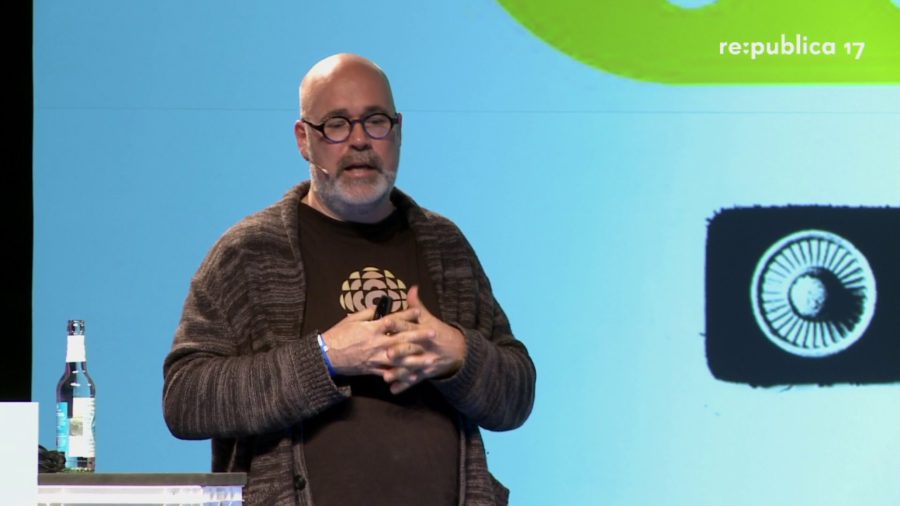
Are We Living Inside an Ethical (and Kind) Machine?
presented by Mark Surman
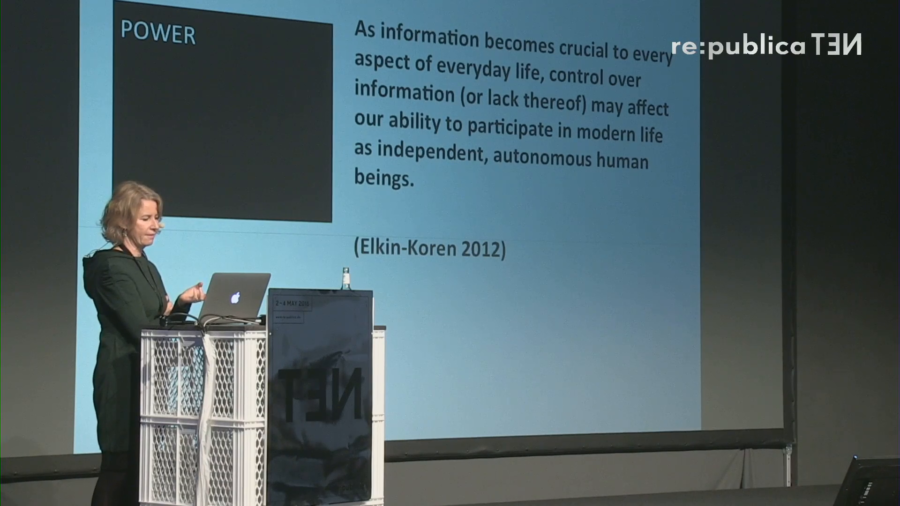
Online Platforms as Human Rights Arbiters
presented by Rikke Frank Jørgensen
What does it mean for human rights protection that we have large corporate interests—the Googles, the Facebooks of our time—that control and govern a large part of the online infrastructure?
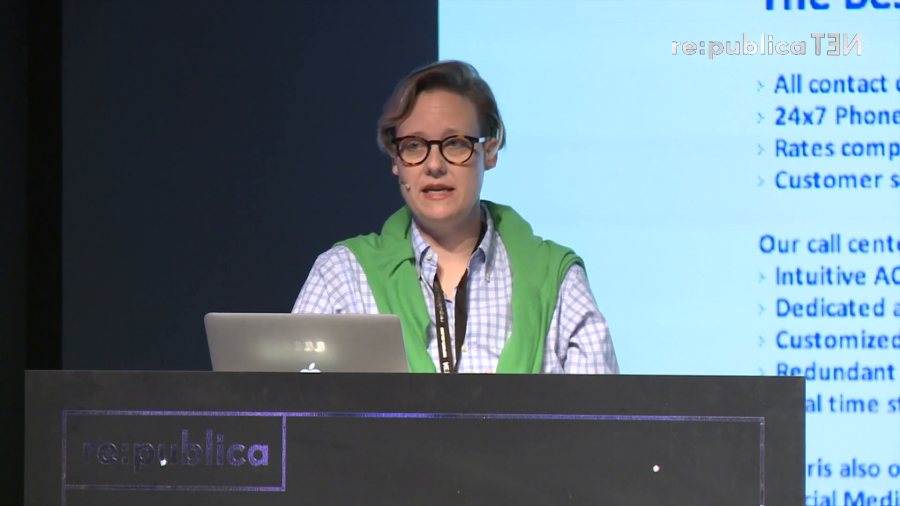
Behind the Screen: The People and Politics of Commercial Content Moderation
presented by Sarah T Roberts
When I asked my peers and my professors if they’d ever heard of this type of work, two things happened. The first thing is that they said no, they hadn’t. The second thing they said, which is probably what you’re thinking, is, “Well, can’t computers do that?” And in fact the answer to that is no.
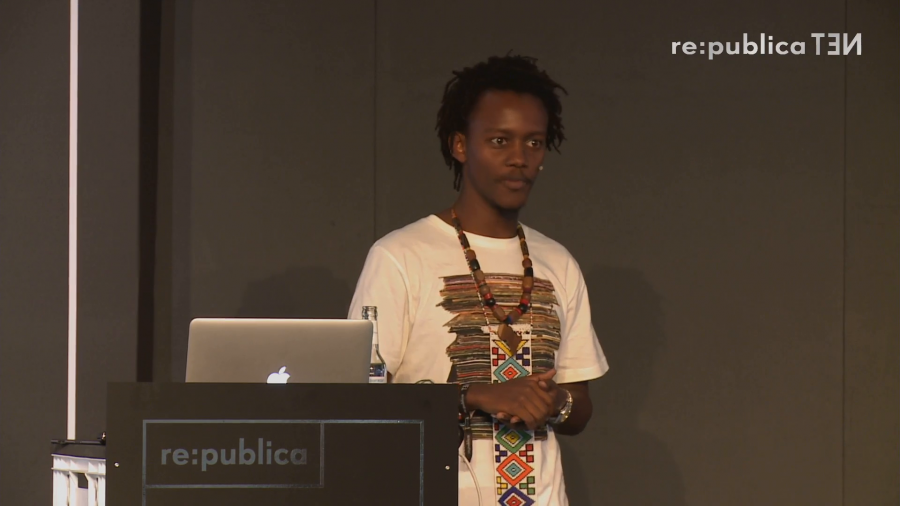
Getting Vinyl in Kenyan Basements to Collectors Globally
presented by Evans Campbell
I’m going to take you through a project that I started back home in Kenya that aims to collect vinyl that people just have chilling around at home. Basically we used to have the only pressing plant in East Africa between 1976 and 1990, and we used to press about a hundred and thirty thousand LPs every year. But right now there are lots of people who have those, but they’re not doing anything with them.
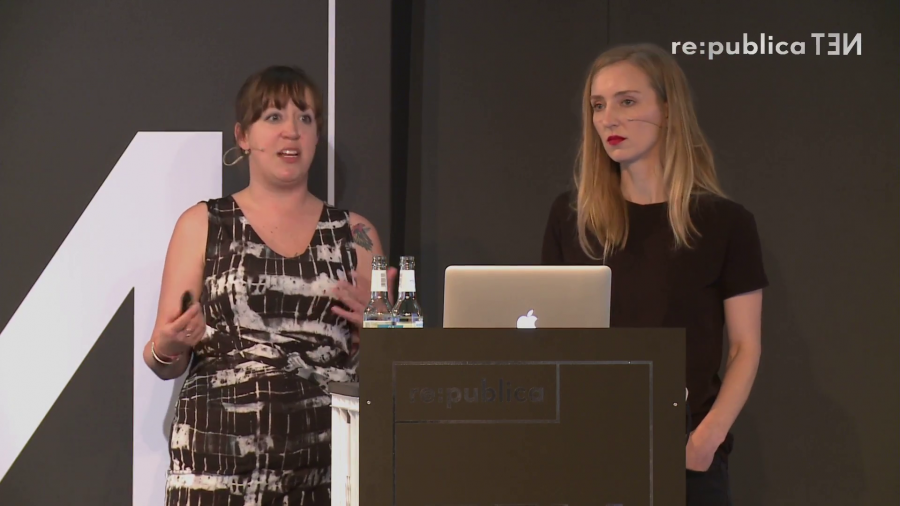
Nudes and N00dz
presented by Addie Wagenknecht, Jillian C York
What we’re talking about today is how social media, and specifically Facebook because we’ve found that they have the strictest policies around this topic, how these social media companies censor art, and specifically nude art. We believe that nude art is an important part of our culture, an important part of our history, and an important part of our present.

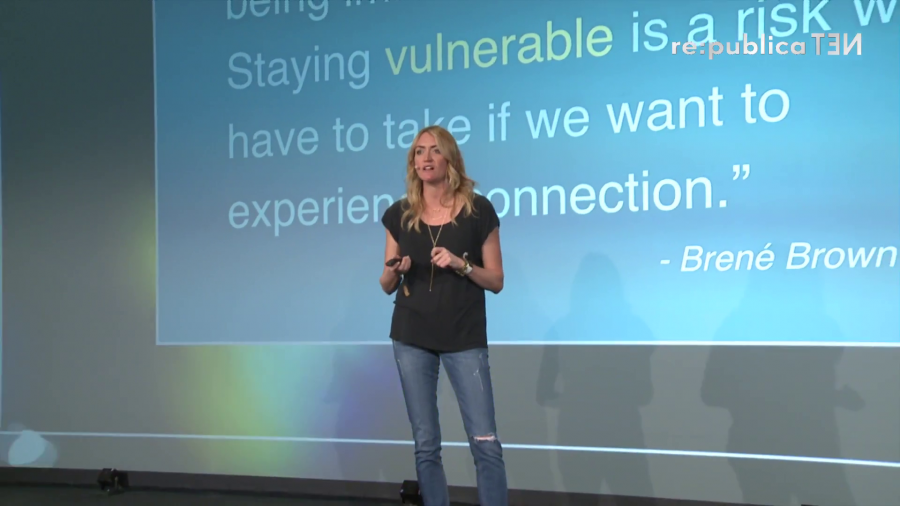
Lost in the Web – How to Navigate the Legal Maze and Protect Free Speech Online
presented by Nani Jansen
We all know that a lot of speech is moving online these days, either by choice because it’s a cheap and accessible way of publishing, or by necessity. At the same time we see an increase in attempts to control free speech online, in what should actually be a space in which information can flow freely.